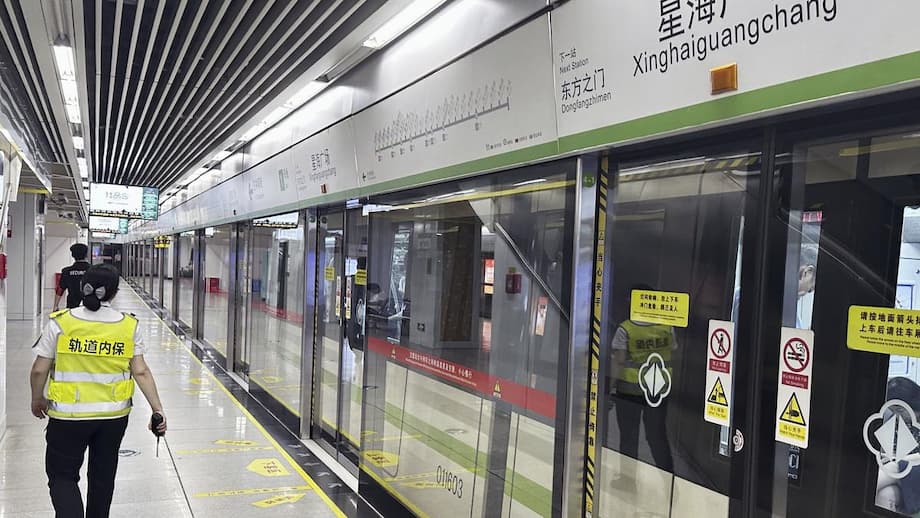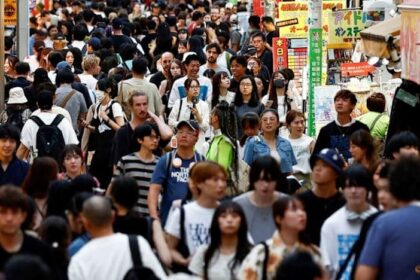Violence in Suzhou and Tokyo Raises Alarm Over Xenophobia
In late July 2025, a disturbing sequence of violent attacks in China and Japan has reignited fears about rising xenophobia and the fragile state of relations between Asia’s two largest economies. Within hours of each other, a Japanese woman was assaulted in a Suzhou subway station in eastern China, while two Chinese men suffered serious injuries in a street attack in central Tokyo. These incidents, though officially described as isolated, have drawn intense scrutiny from diplomats, business leaders, and ordinary citizens, who worry that a pattern of retaliatory violence and deepening mistrust is taking hold.
- Violence in Suzhou and Tokyo Raises Alarm Over Xenophobia
- What Happened: Details of the Recent Attacks
- Official Responses: Diplomatic Protests and Calls for Protection
- Are These Attacks Isolated or Part of a Larger Pattern?
- Impact on Expatriate Communities and Business
- Societal Reflection: Nationalism, Education, and the Path Forward
- Broader Implications: Security, Diplomacy, and the Risk of Escalation
- In Summary
The attacks are the latest in a string of violent episodes targeting foreign nationals in both countries. They have prompted urgent calls for action from embassies, business chambers, and human rights organizations, all demanding greater protection for expatriate communities and a concerted effort to address the underlying causes of xenophobia.
What Happened: Details of the Recent Attacks
The most recent violence began on a Thursday morning in Tokyo’s Chiyoda Ward, where two Chinese men were attacked by four unidentified assailants wielding iron pipes. According to statements from the Chinese Embassy in Japan and local police reports, the victims were walking down the street when the attackers, dressed in hoodies and work uniforms, struck them on the head before fleeing toward Akihabara subway station and escaping in a car with a Kansai license plate. The two men suffered serious injuries but survived. The attackers remain at large, and Japanese authorities have launched a manhunt.
Just hours later, in Suzhou, China, a Japanese woman was assaulted inside a subway station while accompanied by her child. The woman sustained injuries and was treated at a hospital, but her child was unharmed. Japanese media outlets, citing the Consulate General in Shanghai, reported that the suspect was quickly detained by local police, though officials in Suzhou have yet to release an official statement. The victim’s identity has not been made public.
These incidents are not isolated. In June 2024, another Japanese woman and her child were attacked in Suzhou, resulting in the death of a Chinese bus attendant who tried to intervene. In September 2023, a 10-year-old Japanese boy was fatally stabbed outside the Japanese School in Shenzhen, southern China. Both attackers in these cases were sentenced to death, reflecting the gravity with which Chinese authorities have treated such crimes.
Official Responses: Diplomatic Protests and Calls for Protection
The immediate aftermath of the attacks saw a flurry of diplomatic activity. The Chinese Embassy in Tokyo issued a stern statement, urging Japanese authorities to swiftly apprehend the perpetrators and ensure the safety and legal rights of Chinese citizens in Japan. The embassy also reminded Chinese nationals and tourists to remain vigilant and take extra precautions.
China’s Foreign Ministry spokesperson, Guo Jiakun, emphasized the seriousness of the situation, stating:
The Chinese Embassy in Japan has expressed concerns to Japan immediately after the incident and is now further verifying the situation. We urge Japan to take effective measures to ensure the safety of Chinese citizens.
On the other side, the Japanese Chamber of Commerce and Industry in China called on Chinese authorities to guarantee the safety of Japanese citizens. Their statement read:
It is extremely regrettable that such an incident has happened again. Ensuring the safety of employees and their families is fundamental for doing business in China.
Japanese companies with significant operations in China, such as Toyota and Panasonic, have previously taken steps to protect their staff, including offering free flights home and advising caution in public spaces.
Are These Attacks Isolated or Part of a Larger Pattern?
Both Chinese and Japanese officials have repeatedly described these attacks as isolated incidents, not reflective of broader societal attitudes. However, the frequency and nature of the violence—often targeting women, children, and ordinary citizens—have led many observers to question this narrative.
According to an analysis by Oxford Analytica, xenophobic attacks in China are likely to persist, driven by a complex mix of international tensions, historical grievances, and domestic politics. The persistence of such violence could have far-reaching implications for foreign investment, trade, and the overall security environment in both countries.
Historical Grievances and Nationalism
The roots of anti-Japanese sentiment in China run deep, tracing back to Japan’s invasion and occupation of parts of China during World War II. The trauma of that era, which saw millions of Chinese deaths, is kept alive through patriotic education and state media. Anniversaries of wartime events often see a spike in nationalist rhetoric and, occasionally, violence. The 2023 stabbing of the Japanese schoolboy in Shenzhen, for example, occurred on the anniversary of the 1931 Mukden Incident, which marked the start of Japan’s occupation of Manchuria.
In Japan, anti-Chinese sentiment has also been fueled by territorial disputes, economic competition, and concerns over China’s growing regional influence. While outright violence against Chinese nationals in Japan is rare, the recent Tokyo attack has raised fears that xenophobic attitudes may be hardening.
The Role of Social Media and Online Hate Speech
One of the most significant factors amplifying xenophobia in both countries is the proliferation of hate speech and nationalist propaganda on social media platforms. In China, platforms like Weibo are rife with hyper-nationalistic comments, some of which openly call for violence against foreigners. Despite pledges by major tech companies to crack down on hate speech, enforcement remains inconsistent.
Elena Yi-Ching Ho, a research analyst specializing in propaganda and social media, explains:
Chinese social media platforms want to maximize engagement between users, and controversy—especially hyper-nationalistic content—can be lucrative for influencers and vloggers. Algorithms are designed to keep users engaged, sometimes at the cost of amplifying hate.
Andrew Devine, a PhD student at Tulane University, adds:
Tech companies have incentives not to control hate speech, and content that echoes the government’s official position is less likely to be removed. The sheer volume of information makes it impossible to eradicate all hateful content.
While the Chinese government insists it opposes all forms of discrimination and hate speech, critics argue that state-led patriotic education and selective censorship contribute to an environment where xenophobia can flourish.
Impact on Expatriate Communities and Business
The recent attacks have had a chilling effect on expatriate communities in both countries. Japanese residents in China report heightened anxiety, with some companies offering to repatriate staff and families. The Japanese embassy has urged citizens to remain vigilant, and some parents have pulled their children out of international schools.
Chinese nationals in Japan have also expressed fear, particularly in the wake of the Tokyo attack. The Chinese embassy has issued safety advisories and called for increased police protection.
These developments threaten to undermine the economic relationship between China and Japan, which is built on extensive trade, investment, and people-to-people exchanges. Business leaders warn that a climate of fear and mistrust could drive away foreign talent and investment, harming both economies.
Societal Reflection: Nationalism, Education, and the Path Forward
The violence has sparked soul-searching in both societies. In China, the killing of the Japanese schoolboy in 2023 prompted public mourning, with many Chinese citizens laying flowers at the Japanese school and expressing apologies and a desire for peace. At the same time, online calls for a reckoning with anti-Japan sentiment were quickly censored, reflecting the government’s ambivalence toward open debate on nationalism.
Some educators and parents have noted that children are increasingly exposed to anti-foreigner views, whether through school curricula, media, or family conversations. This has led to calls for a reevaluation of how history is taught and how national identity is constructed.
Tina Wu, a social media manager in Shanghai, told Al Jazeera:
I think we need to change the way we are dealing with our past if we want to see less hate speech. As long as the narrative is that we are constantly the victims of foreign aggression, there might be more attacks on foreigners in China.
Wang Zichen, a former Chinese state media journalist, remains cautiously optimistic:
China should have the confidence of walking into the future with a greater sense of security and confidence instead of still being haunted by the memories of the past.
Broader Implications: Security, Diplomacy, and the Risk of Escalation
The escalation of xenophobic violence between China and Japan is more than a bilateral issue—it has regional and global implications. Both countries are key players in the Asia-Pacific, and their relationship influences everything from supply chains to security alliances.
If mutual distrust continues to grow, there is a risk that isolated acts of violence could spiral into broader diplomatic or even economic conflict. Human rights organizations warn that without active government efforts to calm public sentiment and protect vulnerable communities, the cycle of retaliation could deepen.
Observers stress the need for both governments to move beyond rhetoric and take concrete steps to address the root causes of xenophobia, including reforming education, promoting cross-cultural understanding, and ensuring that hate speech is not tolerated—online or offline.
In Summary
- Recent attacks on Japanese and Chinese nationals in Suzhou and Tokyo have heightened fears of rising xenophobia and retaliatory violence between China and Japan.
- Both governments have condemned the attacks and called for greater protection of their citizens, but official statements often frame the incidents as isolated.
- Historical grievances, nationalist education, and social media hate speech are fueling mistrust and intolerance in both societies.
- The violence has had a chilling effect on expatriate communities and threatens to undermine economic and diplomatic ties.
- Experts warn that without active efforts to address the root causes of xenophobia, further escalation is possible, with serious consequences for regional stability.
- Calls are growing for both countries to promote cross-cultural understanding, reform education, and crack down on hate speech to break the cycle of mistrust and violence.












